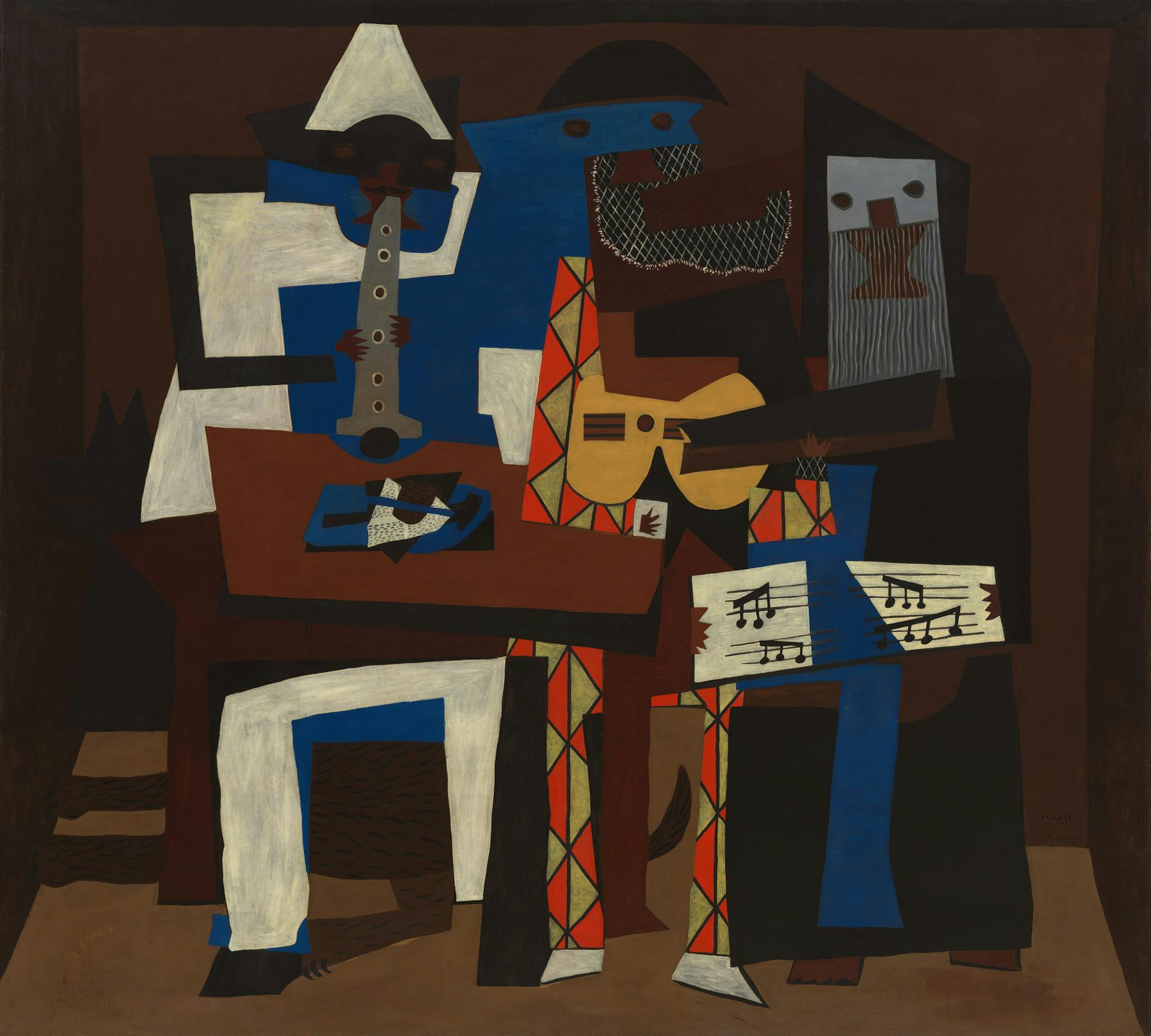
Three Musicians, 1921 by Pablo Picasso
I was wondering today about why and how music can influence my emotions a lot.
I could be in a neutral state. But once I listen to songs that are sad/happy/relaxing/exciting, I unconsciously mimic those emotions. Some subtle like transpiration of water through a plant from the roots to the leaves, others like an ice cold shower or an electric shock to my brain. It happens so automatically that I find it very alarming, intriguing, and practical.
So I did a search and started reading this wikipedia page: Music and Emotion.
Here are some things interesting insights.
- music is good for developing knowledge of emotions during childhood (motherly singing as a way to relay emotional messages), may play a role in identify formation
- children at age of 4 are able to distinguish emotions in music in ways similar to adults
- People high in agreeableness have higher emotional responses to music in general
- Stronger sad feelings have been associated with people high in agreeableness and neuroticism
- previous exposure to music can affect later behavioral choices, schoolwork, and social interactions
- why people listen to sad music?
- to retrieve memories, to feel closer to other people, for cognitive reappraisal, to feel befriended by the music, to distract oneself, and for mood enhancement
- familiarity with a piece of music increases the emotions experienced by the listener
- Emotional memories & actions
- Music serves as a powerful cue to recall emotional memories back into awareness.
- Music is processed by the lower, sensory levels of the brain, making it impervious to later memory distortions
- Throughout history music was composed to inspire people into specific action - to march, dance, sing or fight
- many people report being unable to sit still when certain rhythms are played, in some cases even engaging in subliminal actions when physical manifestations should be suppressed
- In Juslin and Västfjäll's BRECVEM model.
- evaluative conditioning: a piece of music paired repeatedly with a positive or negative stimuli
- ex: playing a piece of music every time you meet your best friend. This music can evoke happiness even in the absence of the interaction.
- emotional contagion: a listener perceives the emotional expression in a song, then 'mimics' the expression internally, inducing the same emotion.
- visual imagery: listener conjures up visual images while listening to music (a beautiful landscape)
- episodic memory: music evokes a memory of a particular event in the listener's life. Referred to as "Darling , they're playing our tune" phenomenon.
- evaluative conditioning: a piece of music paired repeatedly with a positive or negative stimuli
After discovering this, I find music psychology and music therapy to be super interesting. I want to talk to people who are in this field.
Adding the following books to my reading list:
- This Is Your Brain on Music: The Science of a Human Obsession by Daniel J. Levitin
- Musicophilia: Tales of Music and the Brain by Oliver Sacks
- Music, The Brain, And Ecstasy: How Music Captures Our Imagination by Robert Jourdain
If you want to go even deeper into this topic, read books by Barbara and Bruscia.